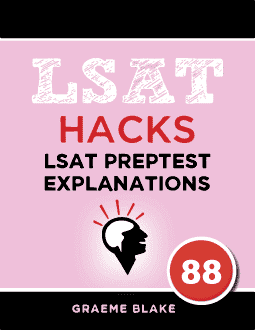DISCUSSION: We’re looking for a principle that works in Passage A’s historical novels, but wouldn’t be applicable to the autobiographies mentioned in Passage B. So we’re looking for a difference or a point of disagreement.
Looking back to our paragraph summaries, a key difference between these Passages is how these authors define “lying”. Passage A talks differentiates strictly between “lies” and “mistakes”. But in Passage B, the distinction between “false memories” and “actual events” is blurrier.
Therefore, we can infer that Passage B wouldn’t agree with Passage A’s distinction, nor Passage A’s claim that “a mistake is unforgivable” or that mistakes would detract from an autobiography.
___________
- CORRECT. Passage B’s author implies that there are times when he can’t discern when a memory is incorrect, and thus wouldn’t agree with Passage A’s distinction between lies and mistakes. And thus, Passage B’s author wouldn’t agree that mistakes are unforgivable.
- This applies for both contexts.
- Only Passage B talks about ethics.
- This is applicable to both historical fiction and autobiography. Passage A talks about this more concretely but Passage B’s assertion that autobiography “dances” between fact and fiction hints that a degree of subtlety is required.
- The passages agree on this.


Leave a Reply